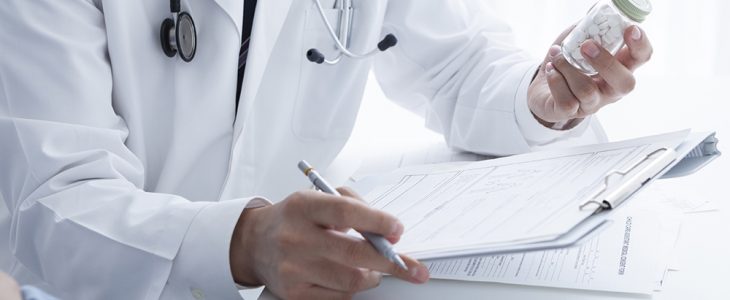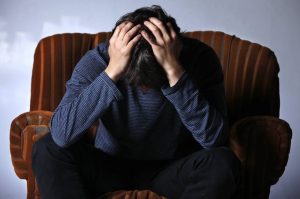Is Drug Detox Painful?
April 13, 2021

A typical first step in addiction recovery is called drug detox. This process aims to remove all traces of drugs from your body. In turn, the lingering effects, such as intense drug cravings, will also go away.
Drug detox is supervised by medical professionals who make sure the procedures are as safe and comfortable as possible. They may also give you medications to relieve any discomfort you may experience.
However, drug detox is not entirely without its challenges.
You will likely experience withdrawal symptoms.
Detoxing from drugs involves lowering your dose progressively until it reaches zero. This method is known as “tapering off,” and it can take a week or more until you can tolerate taking no drugs at all.
Thing is, your body has become so accustomed to drugs that it will react differently once you lower your intake. That’s why you get those so-called withdrawal symptoms, which can either be mild or serious – some of them are even fatal. What symptoms you experience depends on what drugs you are addicted to. Here are some examples of drugs and their associated withdrawal symptoms:
Benzodiazepines (Valium, Xanax, Ativan, Diazepam, etc.)
 Sedation
Sedation- Palpitations
- Problems with sleep
- Sweating
- Hand tremors
- Anxiety
- Panic attacks
Opioids (Heroin, Morphine, Oxycontin, Codeine, etc.)
- Vomiting
- Abdominal cramps
- Diarrhea
- Muscle pain
- Agitation
- Sweating
Stimulants (Cocaine, Amphetamines, etc.)
- Muscle pain
- Anxiety
- Drowsiness
- Heart problems
- Depressive moods
- Suicidal tendencies
Party drugs (Ecstasy, Acid, PCP, Ketamine, etc.)
- Various mental health conditions
In mild cases of addiction, withdrawal symptoms are not as serious, or they may not show up at all. But in more severe cases, withdrawal is very bothersome. They can even be painful at times. Because of these, you might be tempted to keep taking drugs just so the symptoms would go away.
During drug detox, doctors will work closely with you to manage these withdrawal symptoms. They could also prescribe certain medications to minimize the symptoms. That’s why it’s important that detox is medically supervised. Otherwise, you will have no way of managing the pain and discomfort of withdrawal.
How does detox help manage the pain of withdrawal?
 The worst kinds of withdrawal symptoms usually happen when you stop taking the drug abruptly. Your body will have a lot of trouble adjusting to the sudden absence of the drug in your system, leading to those painful and annoying withdrawal symptoms. For this reason, stopping drug intake suddenly is not what they do in drug detox.
The worst kinds of withdrawal symptoms usually happen when you stop taking the drug abruptly. Your body will have a lot of trouble adjusting to the sudden absence of the drug in your system, leading to those painful and annoying withdrawal symptoms. For this reason, stopping drug intake suddenly is not what they do in drug detox.
Instead, your dose of drugs is gradually decreased each day. At the end of the process, you will be able to tolerate zero drug intake. You would still experience some symptoms of withdrawal during detox, but these will be milder and easier to manage.
If the symptoms become serious, doctors will give you medications to relieve them. Also, they could adjust the tapering down of your drug dosage. Overall, the assistance that medical professionals provide you is your best weapon against painful withdrawal.
What kinds of medications are used to help manage withdrawal?
There are different kinds of medications used in drug detox. What is prescribed to you depends on these factors:
- What substance you’ve been taking
- How much of it you take at a time
- How long you’ve been using it
- The severity of your withdrawal symptoms
Here are some examples of abused substances and the medications used when detoxing from them:
Alcohol
- Chlordiazepoxide
- Diazepam
Opioids
- Methadone
- Buprenorphine
Stimulants
- Benzodiazepines
Benzodiazepines
- Switching to other benzodiazepines
- Phenobarbitals
If you’ve noticed, some medications are themselves potentially addictive substances. But when used with medical supervision, they are effective in relieving withdrawal symptoms without triggering another addiction.
Can I just do drug detox at home?
If you’re concerned about the high cost of medically supervised detox, you may consider doing it at home. You may think that gradually lowering your intake of drugs does not seem that complicated.
Take note that this is a dangerous idea. At home, you won’t have any medical teams at the ready to help you when an emergency arises. There won’t be anyone to give you medications to ease the discomfort. Also, you may not know the best way to taper off your drug intake.
Overall, detoxing at home has more risks than benefits. Worse is you could end up spending more money on hospital bills because of complications.
What is inpatient and outpatient drug detox?
 Detox programs typically come in two forms, which are inpatient or outpatient. Inpatient programs require you to stay in a treatment facility, while outpatient ones do not.
Detox programs typically come in two forms, which are inpatient or outpatient. Inpatient programs require you to stay in a treatment facility, while outpatient ones do not.
If your case of addiction is mild, outpatient detox can work well for you. Here, you will go to the treatment facility only for the detox procedure for the day. Once done, you can go back home.
Since you don’t have to stay in a facility, outpatient detox is less costly. However, the level of care is not as high as with inpatient programs.
If your addiction is more severe, or you have a known history of substance abuse, you will need to enter an inpatient detox. Your stay in the treatment facility is included in the cost, so it’s more expensive. However, you will benefit from more intensive treatment and round-the-clock care.
After drug detox, will I be sober for life?
Detox is only the first step in any addiction recovery program. After it, your next step is going through a range of psychological therapies. These may include cognitive behavioral therapy, family therapy, contingency management, motivational enhancement therapy, and many others.
These therapies are meant to address the effects of addiction on your mental health. You’ll be working with therapists to process the events that led to addiction, why you became addicted, and how to avoid situations that may trigger cravings for drugs. You’ll also be taught healthy ways to cope with negative emotions and stressful situations in life.
During the course of these therapies, you may find yourself picking up new hobbies, like sports, gardening, or taking care of a pet. These will help you get used to a lifestyle free of drugs. Later on, you’ll be able to live a sober life once again.